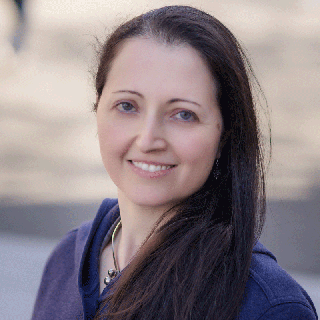I am interested in exploring ways in which collaborative commons and cooperation can challenge and transform the current economics of assistive technology and incentivize rapid development and deployment of ethically built accessible technologies. My research focuses on engineering machine intelligent solutions for customizable real-time, responsive technologies in the context of work, play and urban street environments.
Affiliations
Affiliate Assistant Professor, Electrical & Computer Engineering
Director and co-founder, Taskar Center for Accessible Technology
Research Principal, Paul G. Allen School of Computer Science & Engineering;
Data Science Fellow, eScience Institute
Research highlights
Equity in Transportation Data
All travelers want directions they can trust, but most maps and automated pedestrian routers do not have the data travelers with accessibility requirements need. When we built AccessMap, a personalized, automated pedestrian routing application that takes mobility limitations into consideration, it was clear that municipalities and agencies have not been effective in collecting and maintaining detailed pedestrian-centric map information. Users of AccessMap, currently served in Seattle, Bellingham, and Mt. Vernon, have made it clear with over 35,000 routing requests that people of all abilities require better mobility apps that provide customized information about the pedestrian environment. To scale our efforts, we created the OpenSidewalks data standard along with understandable tools for gathering sidewalk network data, focusing on (1) tools for individual citizen-scientist data entry (2) mass import tools for municipal datasets, and (3) automated computer vision pipelines to map geo-located videos. Our standard and methods for effective data exchange and sharing were recently adopted by King County Metro, Sound Transit, and MVTransit Inc, the largest paratransit operator company with worldwide presence.
The Taskar Center for Accessible Technology (TCAT)
An initiative co-founded by Anat Caspi at the Paul G. Allen School of Computer Science & Engineering to develop, translate and deploy open source, accessible technologies, with a focus on benefiting individuals with motor limitations or speech impairments. TCAT’s translation efforts promote collaborative use of data commons and shared community resources with the recognition that bringing novel accessible technologies to users requires challenging the traditional technology-transfer path. With our partners, we launched the first assistive technology and adapted toy lending library in the Pacific Northwest, serving physical technologies and online resources for others to replicate. Over the past 5 years, TCAT has engaged more than 200 undergraduate and 50 graduate design and engineering students in participatory design and inclusive design practices with our communities of practice, bringing together people of diverse abilities, backgrounds and skill sets towards a common goal of designing for the fullness of human abilities and experiences.
Related news
- Taskar project helps pedestrians find accessible routes all over Washington state
- Anat Caspi speaks at White House panel on AI in Transportation
- Anat Caspi receives Human Rights Educator Award
- Deep Gratitude to Wobbrock, Ladner & Caspi
- $1M NIDILRR award for leadership training program
- The Future of Assistive Technology: A Panel Discussion
- Accessible CS Education workshop focuses on inclusive experiences
- Caspi to lead collaborative $11.45M Transportation Data Equity Initiative
- AccessComputing shares UW CREATE's launch and work toward accessibility
- Designing for the fullness of human experience
